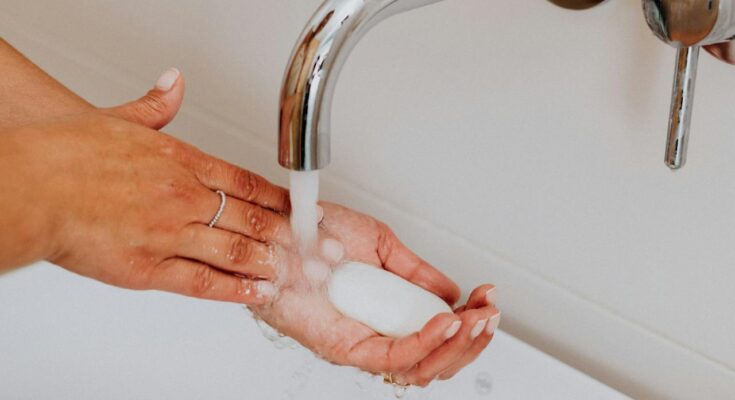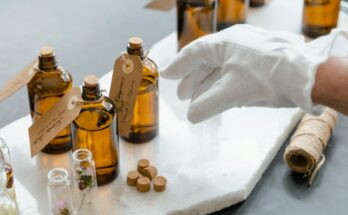Ingredients You Should Look for When Purchasing Antibacterial Soap
When buying antibacterial soap, you indeed need to know about the ingredients that are effective and safe whenever they reduce bacteria. Here are some of the better used antibacterial agents in soaps and their importance:
1.Benzalkonium Chloride (BZK)
- What It Is: A quaternary ammonium compound usually used for disinfectant activity.
- How It Works: Disrupts the cell membranes of bacteria, killing a wide range of bacteria.
- Why It’s Good: BZK kills bacteria and fungi, but also some viruses as well. This agent is very commonly found in antibacterial soaps and wipes.
2.Chloroxylenol (PCMX)
- What It Is: An antimicrobial that has harmful effects against the growth of bacteria and fungi.
- How It Works: It inhibits the growth of microorganisms.
- Why It’s Great: Gentler on the skin while still providing effective antibacterial action. Common in healthcare products.
3.Triclosan (Banned in Some Places)
- What It Is: It is a synthetic antibacterial and antifungal agent.
- How It Works: It disrupts the bacteria’s replication processes.
- Why It’s Controversial: Triclosan is controversial because, although it was once commonly used, it has been restricted or banned in many countries due to concerns about it contributing to antibiotic resistance and environmental repercussions.
4.Tea Tree Oil
- What It Is: A natural antibacterial and antifungal agent from the leaves of the tea tree.
- How It Works: Contains terpinen-4-ol, a substance that damages bacterial cell walls.
- Why It’s Great: A plant-based formula with antibacterial properties that is gentle and safe for sensitive skin.
5.Benzethonium Chloride
- What It Is: It is a quaternary ammonium compound that is akin to benzalkonium chloride.
- How It Works: Kills bacteria via destruction of their cell membranes.
- Why It’s Great: Effective against both gram-positive and gram-negative bacteria, making it a good multifunctional agent.
6.Essential Oils (eucalyptus, lavender, and lemongrass)
- What They Are: Natural oils with anti-microbial properties.
- How They Work: Essential oils break the cell membrane of bacteria and inhibit the growth of bacteria.
- Why They Are Great: Gentle, add antibacterial benefits, and often contribute pleasant smells to the soap.
7.Alcohol-based ingredients
- What They Are: Ethanol or isopropanol used as antiseptic agents.
- How They Work: Denature proteins in bacterial proteins and kill effectively.
- Why They Are Great: Very effective against a wide range of bacteria and viruses; are never used in products other than hand sanitizers.
8.Glycerin with Antibacterial Additives
- What It Is: A moisturizing agent frequently combined with antimicrobial agents.
- How It Works: Moisturizes the skin and promotes antibacterial activity in the soap.
- Why Its Great: Combination of highly effective germ-killing properties and hydrating properties that will not dry the skin.
Last Few Tips for Choosing Antibacterial Soap.
- Skin Type, Matter: Choose gentle, mild formulations if you happen to have sensitive or dry skin.
- Ingredient Awareness: Choose ones without ingredients restricted or controversial, such as triclosan, in regions where restrictions have been placed.
- Environmentally Friendly: Choose soaps made with biodegradable ingredients in an effort to minimize impact on the environment.
Recognizing such quality characteristics permits you to choose an appropriate antibacterial soap that will wash and disinfect-enable without adding negative impact on the skin.

